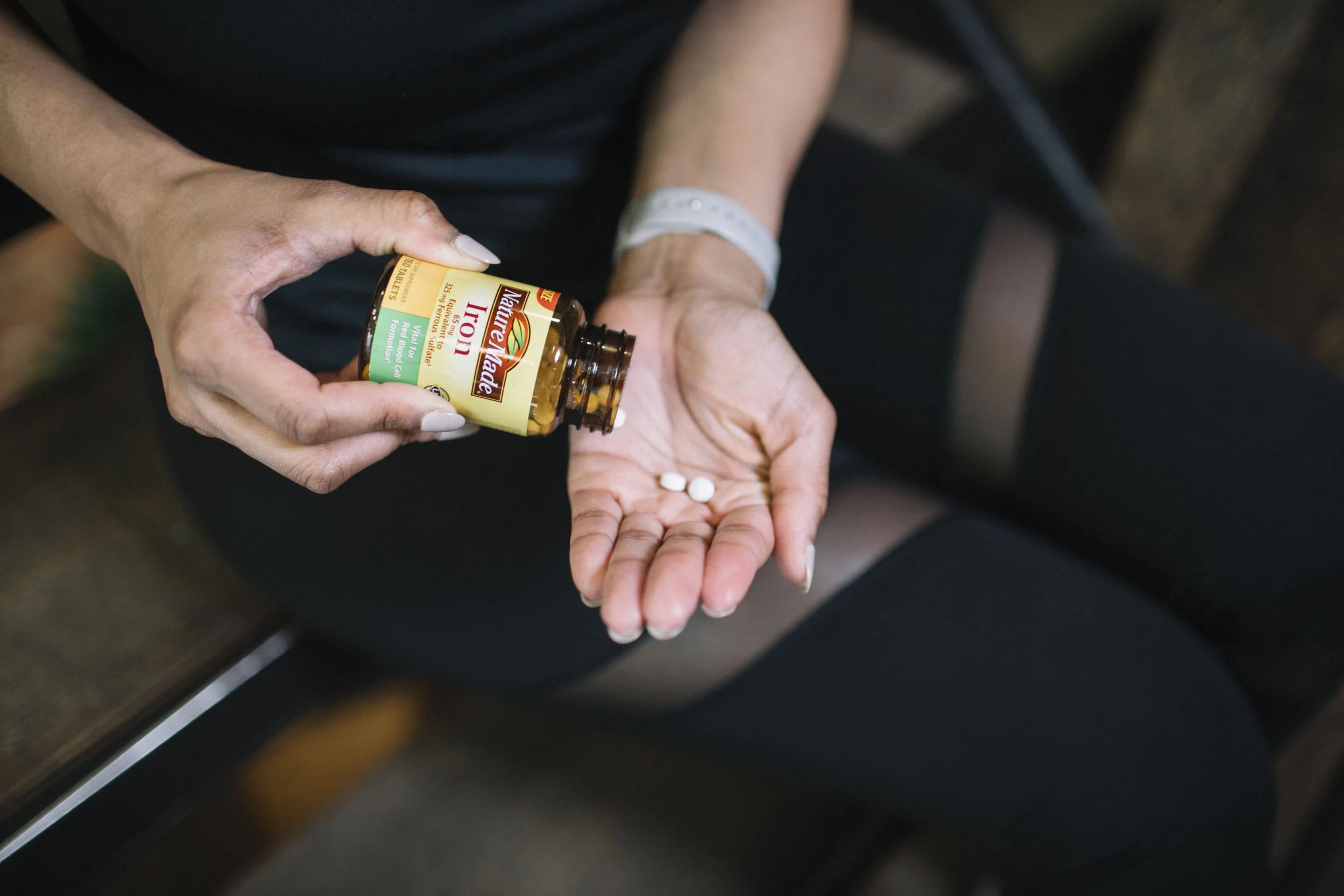Iron Deficiency a Concern for Black Women Runners
Photo: SunChase Media for RUNGRL
By Na’Tasha Jones, Co-founder + Chief Content Officer
From hair care issues to time management, Black women runners have many concerns. These unique concerns around the relationship between our health and our lifestyles are often quite different from those of other ethnicities and genders.
This means that when we have a Black-girl-specific health and wellness concern, it may seem that no one around us can relate. As a result, when things don’t feel quite right, potential problems can go unchecked.
One of these concerns for Black women runners is iron deficiency.
In 2016, BlackDoctor.org reported that “10 percent or more of adolescent and adult women under 49 years are iron deficient.” Additionally, they noted that “Hispanic American and African-American women have double the prevalence of anemia compared to Caucasian women.”
People with anemia have less oxygen in their blood, which means the heart must work harder to pump enough oxygen to their organs. This means that Black women runners have many reasons to pay close attention to their iron levels and potential signs of anemia.
Hispanic-American and African-American women are twice as likely to have anemia as Caucasian women. - Blackdoctor.org
Runner’s World explains, “Iron is a major component of hemoglobin, the transport agent for oxygen and carbon dioxide in the blood. It is also present in muscles in the form of myoglobin, the protein that extracts oxygen from hemoglobin molecules. For metabolism and transport of oxygen to function properly, an adequate level of iron must be available.”
In short, iron carries oxygen and CO2 to your muscles. Without enough iron, your body cannot function properly and certainly not at peak performance. This is important to note because if you’re investing time, money and effort into training to improve performance, you may be missing a crucial reason why you’re feeling burnt out.
If you’ve experienced unusual fatigue, dizziness, heart palpitations, dry, brittle hair, skin or nails, or strange cravings, it may be time to schedule an appointment with your physician, as these can all be symptoms of anemia.
In addition to anemia, Psychology Today advises that iron deficiency can sometimes “present as anxiety, depression, irritability, and even poor concentration and general restlessness” as well. Obviously, maintaining your workouts and even your daily wellness would be a struggle with symptoms like these.
We’ve all got things to do, and as the good sis’ Sweet Brown once said, “Ain’t nobody got time for that!”
Of course, running itself is not a cause of iron deficiency. However, it is important to consider for runners because, as Runner’s World notes, “As a general rule, exercise does not predispose an athlete to anemia, but the symptoms associated with anemia--most commonly excessive fatigue--may become apparent earlier in an athlete.”
Vegetarian Runners at Greater Risk
Photo: SunChase Media for RUNGRL
Plant-based foods contain a type of iron known as non-heme iron. Although it is the most common source of iron, our bodies are less efficient at absorbing it. Therefore, it’s especially important for vegetarians and vegans to pay attention to their iron intake. Indeed, Active.com reports that even if a vegetarian’s total iron intake is the same as his/her meat-eating counterpart, the vegetarian athlete still has a greater risk for iron deficiency because iron found in animal products (heme iron), is absorbed 20 percent more efficiently than iron found in plant products.
So what can you do?
If you suspect you may suffer from iron deficiency or related issues, don’t ignore the signs! Consult with a physician to get tested and determine the best options to treat your problem as soon as possible. If your problem doesn’t require special medication or treatment, work on paying attention to your iron intake to supplement your running wellness. Below are good sources of iron for both carnivores and plant-based runners.
Top Iron-Rich Foods for runners
(Via WebMD)
Heme Iron-Rich Foods - Very good sources of heme iron, with 3.5 milligrams or more per serving:
3 ounces of beef or chicken liver
3 ounces of clams, mollusks, or mussels
3 ounces of oysters
Other good sources of heme iron, with 2.1 milligrams or more per serving:
3 ounces of cooked beef
3 ounces of canned sardines, canned in oil
Non-Heme Iron-Rich Foods - Very good sources of non-heme iron, with 3.5 milligrams or more per serving:
Breakfast cereals enriched with iron
One cup of cooked beans
One-half cup of tofu
1 ounce of pumpkin, sesame, or squash seeds
For even more veggie choices, Healthline also offers this list of “21 Vegetarian Foods That Are Loaded With Iron.”
MEDICAL DISCLAIMER: THE INFORMATION CONTAINED ABOVE DOES NOT AND IS NOT INTENDED TO CONVEY MEDICAL ADVICE AND DOES NOT CONSTITUTE THE PRACTICE OF MEDICINE. ALWAYS SEEK THE ADVICE OF A PHYSICIAN BEFORE BEGINNING ANY FITNESS PROGRAM. SEE FULL TERMS OF USE FOR ADDITIONAL DETAILS.
Na'Tasha Jones
Co-founder + Chief Content Officer






